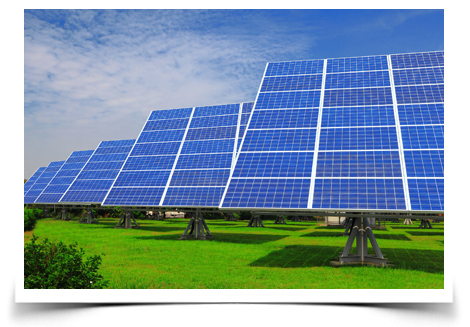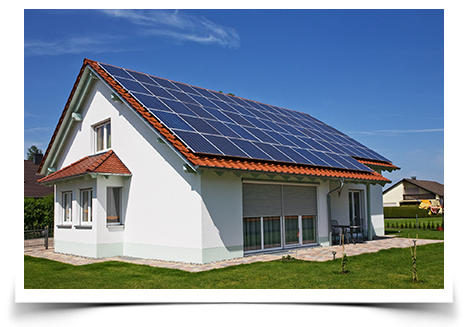Soorya Gramam
Sooryagrammam
 SOORYA GRAMAM is a concept in which a Grama Panchayat moves towards energy security by meeting most of its daily energy needs in terms of electricity by distributed solar PV solutions. The concept does not mean 100% of the electricity demand is met by solar PV. There should be an optimum level of offsetting grid load with solar by integrating ‘custom made’ solutions to different category of consumers. These ‘custom solutions’ can be in terms of the needs and demands, load patterns, spread and distribution of loads, reliability of supply required, appropriate financing models, etc. Finally, the operation and maintenance of the distributed power generation systems will also be undertaken by the local authorities itself through the formation of a ‘local institution’ (‘solar co-operative’ or ‘maintenance committee’), which can then generate a pool of local jobs. The institutional or social enterprise (business) model has to be carefully designed.
SOORYA GRAMAM is a concept in which a Grama Panchayat moves towards energy security by meeting most of its daily energy needs in terms of electricity by distributed solar PV solutions. The concept does not mean 100% of the electricity demand is met by solar PV. There should be an optimum level of offsetting grid load with solar by integrating ‘custom made’ solutions to different category of consumers. These ‘custom solutions’ can be in terms of the needs and demands, load patterns, spread and distribution of loads, reliability of supply required, appropriate financing models, etc. Finally, the operation and maintenance of the distributed power generation systems will also be undertaken by the local authorities itself through the formation of a ‘local institution’ (‘solar co-operative’ or ‘maintenance committee’), which can then generate a pool of local jobs. The institutional or social enterprise (business) model has to be carefully designed.
 The aim of this project is to convert a Grama panchayat into a ‘SOORYA GRAMAM through a solar lighting system for the people in the panchayat which includes number of energy efficient LED lights completely working in solar. For producing the product, implementation, and post implementation management BSS-SOLAR is giving training to the selected individuals within the gram panchayat. Which can then generate a pool of local jobs. Also at later stage the locally available trained people become solar experts and they will be marketing other solar related products in the panchayath. This will enable them to create more income.
The aim of this project is to convert a Grama panchayat into a ‘SOORYA GRAMAM through a solar lighting system for the people in the panchayat which includes number of energy efficient LED lights completely working in solar. For producing the product, implementation, and post implementation management BSS-SOLAR is giving training to the selected individuals within the gram panchayat. Which can then generate a pool of local jobs. Also at later stage the locally available trained people become solar experts and they will be marketing other solar related products in the panchayath. This will enable them to create more income.
The benefits are not only for the consumers. If a small solar lighting system can reduce the power usage from KSEB grid by 1 unit daily, it will help the EB to produce 1 unit less from the generating station or EB not need to buy power at a higher rate from the National grid. 100000 such units in the state will save a considerable amount of money. One unit in peak time cost about Rs.10. The 100000 units will save an amount of 1000000 daily for a state like Kerala.





